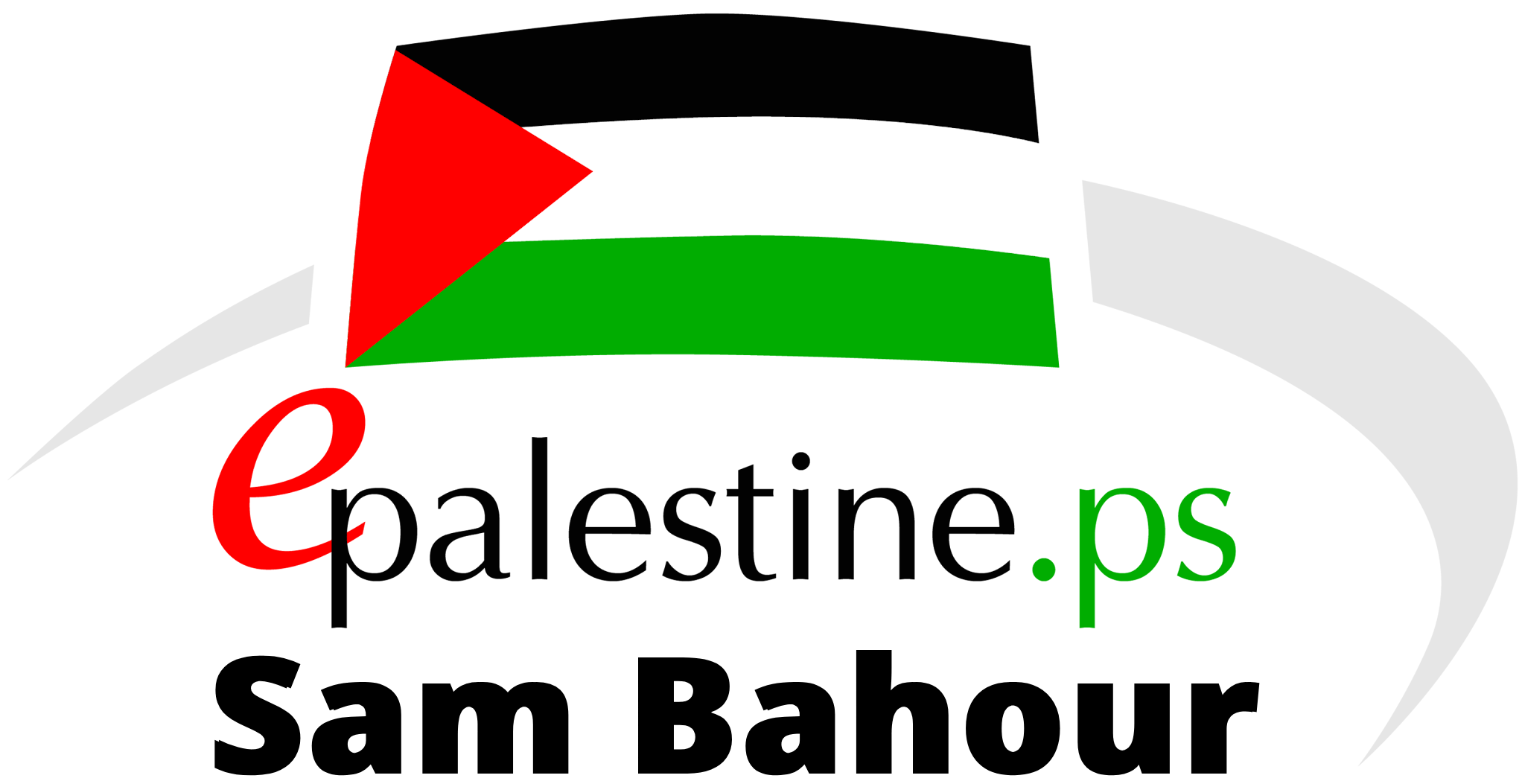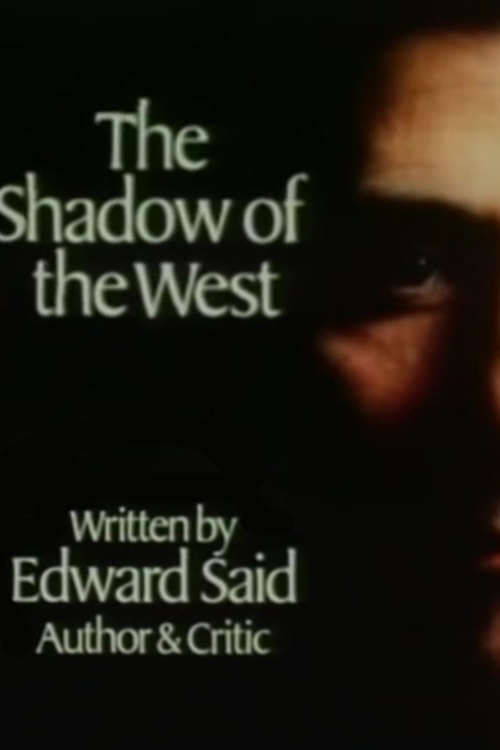Books
Overview | Recently Added | Full List
![Malkit Shoshan’s “Atlas of the Conflict: Israel-Palestine” reference book [Recommended]](https://epalestine.ps/sambahour/wp-content/uploads/2025/03/atlas-of-the-conflict-cover.jpg)
by Sam Bahour | November 1, 2010 | Books
The Atlas of the Conflict maps the processes and mechanisms behind the shaping of Israel-Palestine over the past 100 years. Over 500 maps and diagrams provide a detailed territorial analysis of the Israeli-Palestinian conflict, explored through themes such as borders, settlements, land ownership, archaeological and cultural heritage sites, control of natural resources, landscaping, wars and treaties. A lexicon, drawing on many different information sources, provides a commentary on the conflict from various perspectives. As a whole, the book offers insights not only into the specific situation of Israel-Palestine, but also into the phenomenon of spatial planning used as a political instrument. (Publisher’s description)
![Zionism’s Invented State [Book Review]](https://epalestine.ps/sambahour/wp-content/uploads/2010/03/israeli-exceptionalism-m-shahid-alam.jpg)
by Sam Bahour | March 18, 2010 | Books, Writings
This was not the first time I have read the word “exceptionalism” in relation to Israel. New York Times columnist Roger Cohen recently wrote that Israel “lives in a perpetual state of exceptionalism.” (New York Times, Oct. 16, 2009). However, Professor Alam explored this Israeli phenomenon on a deeper level of its underlying ideology to shed light on why this abnormal state seems to be unable to come to terms with modern day realities.
![“The Origin of the Palestine-Israel Conflict” paper [Recommended]](https://epalestine.ps/sambahour/wp-content/uploads/2025/03/The-Origin-of-the-Palestine-Israel-Conflict-386x516.png)
by Sam Bahour | December 31, 2009 | Books
![“Israeli Apartheid: A Beginner’s Guide” by Ben White [Recommended]](https://epalestine.ps/sambahour/wp-content/uploads/2025/03/israel-apartheid-a-beginners-guide-ben-white.jpg)
by Sam Bahour | July 15, 2009 | Books
Since its release in 2009 the book has become an essential primer for undergraduate students and activists getting to grips with the Palestine/Israel conflict for the first time. Ben White skilfully distills the work of academics and experts into a highly accessible introduction. This new updated and expanded edition includes information on the Israeli blockade and attacks on the Gaza Strip since 2008, new policies targeting Palestinian citizens of Israel and the growth of the global Boycott Divestment Sanctions campaign. Packed with vital information, quotations and resources, Israeli Apartheid never loses the human touch. The book is rooted in the author’s extensive personal experience in Palestine and includes testimonies by Palestinians describing how Israeli apartheid affects their daily lives. (Publisher’s description)
![“Palestine in Pieces: Graphic Perspectives on the Israeli Occupation” by Kathleen & Bill Christison [Recommended]](https://epalestine.ps/sambahour/wp-content/uploads/2025/03/Palestine-in-Pieces-kathleen-bill-christison.jpg)
by Sam Bahour | June 20, 2009 | Books
Palestine in Pieces brings personal and pictorial perspectives to the Israeli occupation of Palestinian territories in the West Bank, Gaza, and East Jerusalem. Former CIA political analysts Kathleen and Bill Christison give a comprehensive description of the occupation and the ways in which Israel dominates the Palestinians: Settlements, the Separation Wall, roads restricted to cars with Israeli license plates, home demolitions on a massive scale, imprisonment and mass killings. With more than 50 photographs vividly demonstrating the impact of the occupation on the Palestinian people, the authors argue that Israel’s long-term intention is to so fragment the occupied territories that any sustainable presence in the land by Palestinians as a nation will be negated.
![“Judaism Does Not Equal Israel” by Marc H. Ellis [Recommended]](https://epalestine.ps/sambahour/wp-content/uploads/2025/03/judaism-does-not-equal-israel-marc-h-ellis.jpg)
by Sam Bahour | March 31, 2009 | Books
In this poignant, powerful volume, the influential Jewish thinker and critic Marc H. Ellis takes on the hard moral questions about Jewish support for the state of Israel. Reviewing the historical record of the past sixty years and envisioning the prospects for a just and lasting peace, Ellis makes an unyielding case–based on the most cherished Jewish values–that the present policies of the Israeli state cannot reasonably be defended. The future not only of Judaism but of Israel itself, he argues, hinges on a fundamental shift in Israel’s treatment of the Palestinians and on a completely new direction in the peace process. (Publisher’s description)
![The Wages Of Force: Expansion, Not Peace [Book Review]](https://epalestine.ps/sambahour/wp-content/uploads/2009/03/defending-the-holy-land-zeev-maoz.png)
by Ellen Cantarow | March 27, 2009 | Books
In 1997 Hamas offered Israel a 30-year truce. Jordan’s King Hussein delivered the offer: Israel’s response was to send Mossad agents to Jordan where they tried to kill Hamas leader Khaled Meshal by dropping poison in his ear. The incident (described by former Mossad chief Efraim Halevy in his book, Man in the Shadows), not only deeply embarrassed the King, it also failed to kill Meshal. (Other peace bids were made; all were rejected, though none, perhaps, as dramatically as this.) The 1997 assassination attempt illustrates what Zeev Maoz, in his landmark work, Defending the Holy Land, calls Israel’s “over my dead body” approach to peace.
![“Palestinian Walks: Forays into a Disappearing Landscape” by Raja Shehadeh [Book Review]](https://epalestine.ps/sambahour/wp-content/uploads/2008/07/palestinian-walks-raja-shehadeh.jpg)
by James Zogby | July 19, 2008 | Books
The simple things in life, like one’s relation to a landscape, are what are being effaced by the Israeli occupation of Palestine. Raja Shehadeh is one of Palestine’s leading writers. He is also a lawyer and the founder of the pioneering Palestinian human rights organization Al-Haq. “Raja Shehadeh’s Palestinian Walks provides a rare historical insight into the tragic changes taking place in Palestine.” – Former U.S. President Jimmy Carter.
![“Beyond Chutzpah: On the Misuse of Anti-Semitism and the Abuse of History” by Norman Finkelstein [Recommended]](https://epalestine.ps/sambahour/wp-content/uploads/2025/03/Beyond-Chutzpah-on-the-Misuse-of-Anti-semitism-and-the-Abuse-of-History.jpg)
by Sam Bahour | June 2, 2008 | Books
“His research is painstaking, his evidence persuasive and his conclusions devastating.”—London Review of Books. In Beyond Chutzpah, Norman Finkelstein moves from an iconoclastic interrogation of the new anti-Semitism to a meticulously researched exposé of the corruption of scholarship on the Israel–Palestine conflict, especially in the work of Alan Dershowitz. Pointing to a consensus among historians and human rights organizations on the factual record, Finkelstein argues that so much controversy continues to swirl around the conflict because apologists for Israel contrive it. (Publisher’s description) “A very solid, important and highly informative book. Norman Finkelstein provides extensive details and analysis, with considerable historical depth and expert research, of a very wide range of issues concerning Israel, the Palestinians, and the United States.”—Noam Chomsky
![“The Ethnic Cleansing of Palestine” by Ilan Pappe [Recommended]](https://epalestine.ps/sambahour/wp-content/uploads/2025/03/The-Ethnic-Cleansing-of-Palestine-by-Ilan-Pappe.jpg)
by Sam Bahour | September 7, 2007 | Books
“Along with the late Edward Said, Ilan Pappe is the most eloquent writer of Palestinian history.”—NEW STATESMAN. Renowned Israeli historian, Ilan Pappe’s groundbreaking work on the formation of the State of Israel. Between 1947 and 1949, over 400 Palestinian villages were deliberately destroyed, civilians were massacred and around a million men, women, and children were expelled from their homes at gunpoint. Denied for almost six decades, had it happened today it could only have been called ‘ethnic cleansing’. Decisively debunking the myth that the Palestinian population left of their own accord in the course of this war, Ilan Pappe offers impressive archival evidence to demonstrate that, from its very inception, a central plank in Israel’s founding ideology was the forcible removal of the indigenous population. Indispensable for anyone interested in the current crisis in the Middle East.
![Malkit Shoshan’s “Atlas of the Conflict: Israel-Palestine” reference book [Recommended]](https://epalestine.ps/sambahour/wp-content/uploads/2025/03/atlas-of-the-conflict-cover.jpg)

![<a class="amazingslider-posttitle-link" href="https://epalestine.ps/sambahour/2023/09/the-bible-is-not-a-baton">The Bible Is Not a Baton [Book Review]</a> The Bible Is Not a Baton [Book Review]](https://epalestine.ps/sambahour/wp-content/uploads/2023/09/the-bible-is-not-a-baton-1790705007.png)
![<a class="amazingslider-posttitle-link" href="https://epalestine.ps/sambahour/2023/09/they-called-me-a-lioness-a-palestinian-girls-fight-for-freedom-recommended">"They Called Me a Lioness: A Palestinian Girl's Fight for Freedom" [Recommended]</a> "They Called Me a Lioness: A Palestinian Girl's Fight for Freedom" [Recommended]](https://epalestine.ps/sambahour/wp-content/uploads/2025/03/they-called-me-a-lloness.jpeg)
![<a class="amazingslider-posttitle-link" href="https://bookshop.org/p/books/a-day-in-the-life-of-abed-salama-a-jerusalem-odyssey-nathan-thrall/19664070?ean=9781250854964&next=t">"A Day in the Life of Abed Salama" [Recommended]</a> "A Day in the Life of Abed Salama" [Recommended]](https://epalestine.ps/sambahour/wp-content/uploads/2025/03/A-Day-in-the-Life-of-Abed-Salama-by-Nathan-Thrall.jpg)
![<a class="amazingslider-posttitle-link" href="https://epalestine.ps/sambahour/2023/06/from-wisconsin-to-gaza-to-jenin">From Wisconsin to Gaza to Jenin: An American Writer’s Lived Experience in Palestine [Book Review]</a> From Wisconsin to Gaza to Jenin: An American Writer’s Lived Experience in Palestine [Book Review]](https://epalestine.ps/sambahour/wp-content/uploads/2023/06/from-wisconsin-to-gaza-to-jenin-1926401834.jpeg)
![<a class="amazingslider-posttitle-link" href="https://epalestine.ps/sambahour/2023/05/peacemakers-in-israel-palestine-dialogues-for-a-just-peace-recommended-reading">"Peacemakers in Israel-Palestine: Dialogues for a Just Peace" [Recommended]</a> "Peacemakers in Israel-Palestine: Dialogues for a Just Peace" [Recommended]](https://epalestine.ps/sambahour/wp-content/uploads/2025/03/Peacemakers-in-Israel-Palestine.jpg)
![<a class="amazingslider-posttitle-link" href="https://epalestine.ps/sambahour/2022/12/non-violently-resisting-israeli-military-occupation-with-a-scalpel">Non-violently resisting Israeli military occupation, with a scalpel [Book Review]</a> Non-violently resisting Israeli military occupation, with a scalpel [Book Review]](https://epalestine.ps/sambahour/wp-content/uploads/2022/12/non-violently-resisting-israeli-military-occupation-with-a-scalpel-472741138.jpeg)
![<a class="amazingslider-posttitle-link" href="https://www.goodreads.com/en/book/show/65167107-rooted-in-palestine">"Rooted in Palestine: Palestinian Christians and the Struggle for National Liberation 1917-2004" [Recommended]</a> "Rooted in Palestine: Palestinian Christians and the Struggle for National Liberation 1917-2004" [Recommended]](https://epalestine.ps/sambahour/wp-content/uploads/2025/03/Rooted-in-Palestine-Palestinian-Christians-and-the-Struggle-for-National-Liberation-1917-2004-Xavier-Abu-Eid.jpg)
![<a class="amazingslider-posttitle-link" href="https://epalestine.ps/sambahour/2022/09/stranger-in-my-own-land">"Stranger in My Own Land: Palestine, Israel and One Family’s Story of Home" by Fida Jiryis [Book Review]</a> "Stranger in My Own Land: Palestine, Israel and One Family’s Story of Home" by Fida Jiryis [Book Review]](https://epalestine.ps/sambahour/wp-content/uploads/2022/09/stranger-in-my-own-land-1183647562.jpeg)
![<a class="amazingslider-posttitle-link" href="https://epalestine.ps/sambahour/2022/07/glory-to-god">An American Evangelical Christian Man’s Awakening to Palestine [Book Review]</a> An American Evangelical Christian Man’s Awakening to Palestine [Book Review]](https://epalestine.ps/sambahour/wp-content/uploads/2022/07/glory-to-god-1544954625.png)
![<a class="amazingslider-posttitle-link" href="https://epalestine.ps/sambahour/2022/06/the-olive-branch-from-palestine">Palestinians never stop conceding, for nothing in return [Book Review]</a> Palestinians never stop conceding, for nothing in return [Book Review]](https://epalestine.ps/sambahour/wp-content/uploads/2022/06/the-olive-branch-from-palestine-2038246591.png)
![Zionism’s Invented State [Book Review]](https://epalestine.ps/sambahour/wp-content/uploads/2010/03/israeli-exceptionalism-m-shahid-alam.jpg)
![“The Origin of the Palestine-Israel Conflict” paper [Recommended]](https://epalestine.ps/sambahour/wp-content/uploads/2025/03/The-Origin-of-the-Palestine-Israel-Conflict-386x516.png)
![“Israeli Apartheid: A Beginner’s Guide” by Ben White [Recommended]](https://epalestine.ps/sambahour/wp-content/uploads/2025/03/israel-apartheid-a-beginners-guide-ben-white.jpg)
![“Palestine in Pieces: Graphic Perspectives on the Israeli Occupation” by Kathleen & Bill Christison [Recommended]](https://epalestine.ps/sambahour/wp-content/uploads/2025/03/Palestine-in-Pieces-kathleen-bill-christison.jpg)
![“Judaism Does Not Equal Israel” by Marc H. Ellis [Recommended]](https://epalestine.ps/sambahour/wp-content/uploads/2025/03/judaism-does-not-equal-israel-marc-h-ellis.jpg)
![The Wages Of Force: Expansion, Not Peace [Book Review]](https://epalestine.ps/sambahour/wp-content/uploads/2009/03/defending-the-holy-land-zeev-maoz.png)
![“Palestinian Walks: Forays into a Disappearing Landscape” by Raja Shehadeh [Book Review]](https://epalestine.ps/sambahour/wp-content/uploads/2008/07/palestinian-walks-raja-shehadeh.jpg)
![“Beyond Chutzpah: On the Misuse of Anti-Semitism and the Abuse of History” by Norman Finkelstein [Recommended]](https://epalestine.ps/sambahour/wp-content/uploads/2025/03/Beyond-Chutzpah-on-the-Misuse-of-Anti-semitism-and-the-Abuse-of-History.jpg)
![“The Ethnic Cleansing of Palestine” by Ilan Pappe [Recommended]](https://epalestine.ps/sambahour/wp-content/uploads/2025/03/The-Ethnic-Cleansing-of-Palestine-by-Ilan-Pappe.jpg)

![“God does not exist, and he promised us this land” [Book Review]](https://epalestine.ps/sambahour/wp-content/uploads/2020/04/9780745335810252822529-710357-1.jpg)